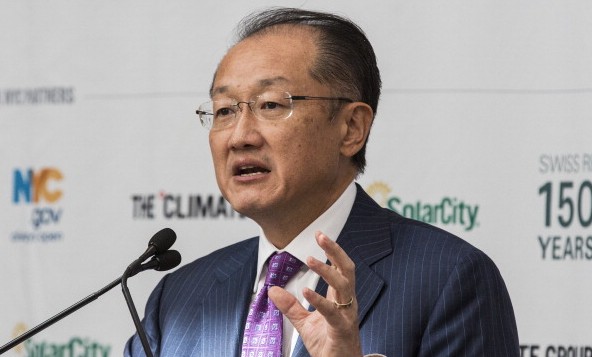There is no shortage of small ways in which individuals can take action against climate change. What is lacking, at least thus far, is a solution equal to the scale of the challenge, according to World Bank President Jim Yong Kim.
The World Bank is seeking to incorporate efforts to tackle climate change into its poverty-reduction activities worldwide. As part of that push, the bank has been in consultation with a range of environmental organizations and other stakeholders in energy and climate, asking what it could do differently to help advance those efforts.
“What happens is everyone has their favorite project,” Kim told attendees of the Climate Week NYC opening ceremony on Monday. These “favorite projects” are often small in scale, such as installing solar power in villages, or, Kim said, encouraging people to shower less.
“I think we’re moving in the right direction, but so much of our action around climate change has been too small,” Kim said. “We have to come up with solutions that at least look like they’re equal to the challenge.”
The World Bank Group aims to identify, and implement, solutions that can be brought to scale.
“Unfortunately, the world is obsessed with project pilotology, and there are so few people whose specialty is scale-upology,” Kim said. “We’re focusing, focusing, focusing on being the organization that can take these innovations and be specialists in scale-upology.”
“We have got to stop talking about small projects that we’re really excited about, but that will not, at the end of the day, solve this problem,” Kim said.
Some of the bank’s focus areas include efforts to help countries design greener and more sustainable cities, expand deployment of innovations that can help improve the efficiency and reduce the environmental footprint of agriculture, and eliminate fuel subsidies that discourage efficient energy use. “It’s really politically difficult. Removing subsidies on fuel is about as easy as closing schools and closing hospitals,” Kim said.

